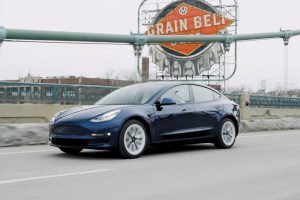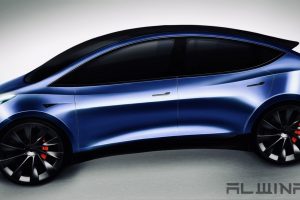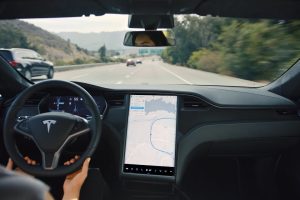Key Points
- 🚗 Ford CEO Jim Farley predicts slower-than-expected EV adoption in the near term.
- 💸 Ford’s Q2 results show a substantial loss of $1.1 billion in its electric vehicle division, more than double the previous year’s losses.
- 📉 Ford now expects to lose $4.5 billion before interest and taxes on its electric vehicles in 2023, with a slower rollout of EVs.
- 🚀 Despite larger losses, Ford’s electric vehicle business is growing, and revenue from Ford Model e’s first-gen electric cars rose 39% in Q2.
- 🌟 Ford remains optimistic, stating that early movers like them will benefit from the slightly slower pace of EV adoption. They have next-gen products in advanced development.
Ford CEO, Jim Farley, Foresees Slower EV Adoption in the Near Term as Second-Quarter Results Show Significant Losses in Electric Vehicle Division
During a recent disclosure of its second-quarter results, Ford CEO, Jim Farley, made a prediction that the adoption of electric vehicles (EVs) would be slower than initially expected, particularly in the near future. Despite reporting an overall revenue of $45 billion, marking a 12% year-over-year increase, Ford revealed a substantial loss of $1.1 billion before interest and taxes in its electric vehicle business during the second quarter. This figure is more than double the losses incurred in the previous year.
According to a report from The New York Times, Ford has now adjusted its expectations and foresees a total loss of $4.5 billion before interest and taxes in its electric vehicle division for 2023. This estimate is higher than the previously projected $3 billion in losses. In a conference call, Ford Chief Financial Officer (CFO) John Lawler addressed the situation, stating, “While the shift to EVs is unquestionably underway, the last few weeks have shown us the adoption by early, majority customers will be a little slower than expected.” As a result, Ford has decided to scale back its electric vehicle rollout to some extent, with the company now aiming to manufacture 600,000 EVs annually by the end of 2024. The previous target was to reach this production level by the end of the current year.
Despite the considerable losses, Ford’s electric vehicle business is still experiencing growth. The company reported that revenue from its first-generation electric car, the Ford Model e, rose by 39% in the second quarter. Jim Farley maintained a positive outlook on the situation, stating, “The near-term pace of EV adoption will be a little slower than expected, which is going to benefit early movers like Ford. EV customers are brand loyal, and we’re winning lots of them with our high-volume, first-generation products; we’re making smart investments in capabilities and capacity around the world; and, while others are trying to catch up, we have clean-sheet, next-generation products in advanced development that will blow people away.” Despite the current challenges, Ford remains committed to its long-term vision for the future of electric vehicles.





